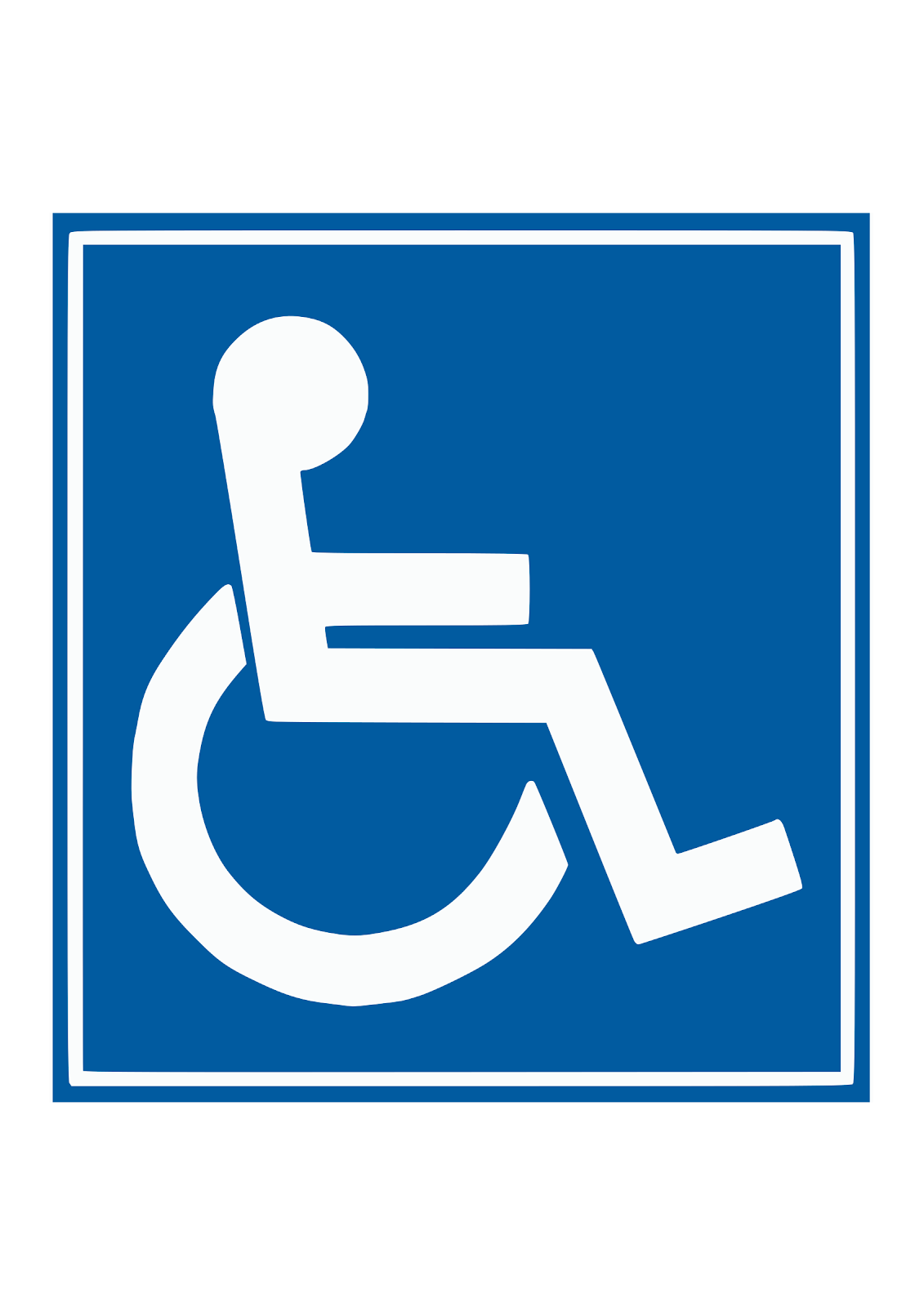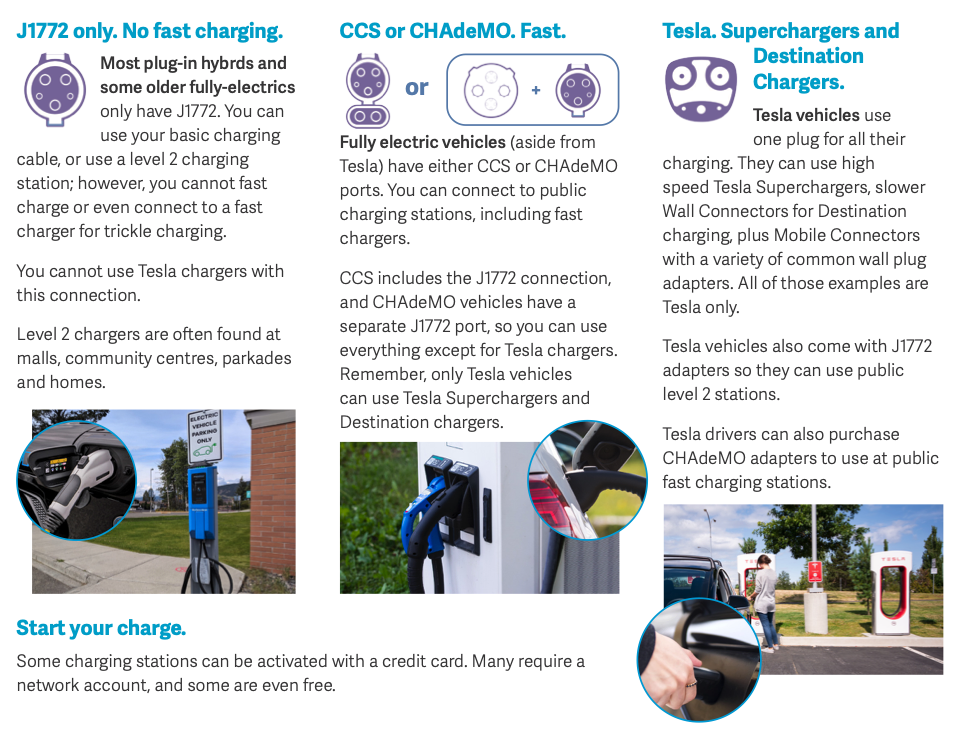EVs & Home Charging – Things to Consider
August 30, 2023 – A resource booklet prepared by VEVA Government Relations Committee
Starting out – before purchasing an EV, think about what you want the vehicle to do:
a. Commuting, local shopping, family trips around town
b. Work related uses, longer trips
c. Anything else?
Most people living in urban and suburban areas only drive 35-40 kilometres/day – this includes shopping, commuting, “driving the kids to sports,” etc. By comparison, distances can be much greater in rural and remote communities. Take a minute to track how much driving you actually do now. This will affect the battery size and range for your EV and how much charging you will need to do. Bear in mind that the more you drive, the more cost benefits you will see
from owning an EV. This is particularly important in rural and remote settings. See Emotive BC for a full list of available vehicles.
1. Individual Homes and Residences
Overnight charging at home
In many cases, overnight charging on a low-speed charger (known as a “Level 1 Charger”) may be adequate. Using the car manufacturer’s dedicated cord and plug and a regular 120 V dedicated outdoor or garage circuit will result in approximately 5-7 km of new range per hour of charging, so 8-10 hours of overnight charging would add 40-70 km of range to your battery.
Faster charging can be achieved with a more powerful circuit
Have a certified electrician check your electrical panel. If it has sufficient capacity, a 220-240 V, 40-50 amp circuit for a dedicated EV charger can be installed. This is known as a “Level 2 Charger” and can support 30-48 km of range per hour of charging, so 8-10 hours of overnight charging would add 240-480 km of range to your battery. EVs generally have onboard electronics that will shut off charging when it reaches the desired “state of charge” (normally set at 80%).
How much will it cost to install an EV charger?
Costs range from:
a. $0.00 (if you already have a 120V outdoor receptacle in your home or garage wired on its own circuit for 15amps, and if Level 1 overnight charging is sufficient for your needs). Note: This does not include the cost of the car manufacturer’s dedicated cord and plug if not supplied with the vehicle.
b. $1000 to $2,500 to install the required wiring if you already have sufficient panel capacity to support a Level 2 charger. Options include using the car manufacturer’s dedicated cord and plug with a stove or electric dryer receptacle. Alternatively, an independent Level 2 charger can be installed, and does not require the manufacturer's cord and plug.
c. If you need to upgrade your home service in order to support a Level 2 charger, this will add further costs. Options include a new service or load sharing devices.
For Level 2, you should consult a licensed electrician to assess the electrical capacity of your home service, and the technical requirements and costs for installing appropriate circuitry.
Charging for hot and cold weather driving
EVs use their battery to heat and cool the cabin. This can reduce range in summer and winter by 10-15% or more. Keep your EV plugged in when you can, until you actually want to drive it.
How much does it cost to charge at home?
Charging at residential BC Hydro and Fortis BC rates is roughly 1/7th the cost of buying gasoline. Public charging (explained below) is costlier than home charging, but you are paying for the convenience of publicly available Level 2 charging.
Solar energy to support home EV charging
There is growing interest in BC in on- and off-grid use of solar photovoltaic cells to generate electricity that can be stored in batteries at home or integrated with the electrical grid. BC Hydro has helpful information on solar power generation.
2. If “Home” is a Condominium – New Condos Have “EV-ready” Parking Stalls
Whereas Older (“Legacy”) Condos Likely Won’t
a. EV Charging in New Condos (Multiple Unit Residential Buildings)
BC Municipalities – Electric Autonomy Listing of Bylaws
City of Vancouver Bylaw 10908 – Section 10.2.3
This Vancouver Bylaw was amended on July 1, 2014, to include provisions for Level 2 EV charging infrastructure at all residential and commercial buildings. On March 14, 2018, the bylaw was updated to raise the percentage of EV-ready parking stalls in MURBs from 20 per cent to 100 per cent. The current bylaw also requires one EV-ready stall for single-family residences with garages and 10 per cent of parking stalls to be EV-ready for commercial buildings.
b. EV Charging in “Legacy” (pre-2014) Condos – Retrofit Rebates and Revised Strata
Property Act
BC historically has provided a variety of rebates to assist with installing Level 2 chargers in older condos. This bears watching to ascertain what rebates are currently available. See: EV-Ready
c. Obtaining Strata Owners Support – “Right to Charge”
On May 11, 2023 the BC government revised the Strata Property Act to streamline the consultation process for obtaining Strata corporation and owners approval and support. Stata owners can now approve some EV charging decisions by majority vote instead of by a ¾ vote. Other changes will be brought into force at a later date by regulation. These regulations will specify criteria and requirements relating to electrical planning reports and requests for and/or approval of installation of EV charging. BC Hydro has useful information on how to work with a Strata
Council to request EV charging.
d. Low Carbon Fuel Standard (LCFS) Credits for EV Charging – A Valuable Asset for Condos
The BC Government recently (May 2022) changed its legislation to allow condominiums to collect LCFS Credits for EV charging for residential buildings with 5 or more dwelling units.
3. Public EV Charging – At Work, In Town, On the Road
Many businesses and services now offer public Level 2 charging for a fee through an EV charging service provider. This includes malls, grocery stores, parking facilities, and more, as well as charging at work. Remember, there is an EV charging etiquette for using public chargers.
Public DCFC (Direct Current Fast Charging)
Beyond public Level 2 charging, a number of EV charging service providers now offer “fast charging”. Depending on the capabilities of the vehicle and the charging facilities, most EVs can be charged to 80% in 40 minutes.
PlugShare
To find public DCFC and Level 2 chargers, consult one of the available apps, such as PlugShare . This is a useful tool for locating public charging, and ensuring the chargers are working, and is extremely valuable for managing charging when traveling.
Safety and Accessibility
BC Hydro has developed design guidelines for public safety and accessibility of EV charging stations. Work in this area is ongoing. Remember, EV charging is self-serve, and drivers are generally on their own to plug-in and service their own vehicles. You can use PlugShare to get a sense of how safe and accessible a charging station is.
There remains an acute need to employ universal design principles to design, construct and operate fully accessible EV charging facilities so that all British Columbians can safely and equitably operate electric vehicles. All of us at one time in our lives will require enhanced accessibility for EV charging.
Additional Sources of Information
EV Advisor Service for Strata and Workplaces – Plug In BC
VEVA Business Members
New Driver Tips from Emotive – Know Your Plugs and Monitor Ongoing Changes

We hope you enjoy your experiences with your new (or current) EV!
We invite you to join VEVA and share your experiences with other EV drivers across BC. We hold online meetups with members twice a week on Tuesdays and Saturdays and we also host in-person meet-ups in parks and local venues on
Saturdays. We regularly feature guest speakers, YouTube videos, and more.
1. https://veva.ca/EV-POLICY
2. https://www.emotivebc.ca
3. https://electricvehicles.bchydro.com/charge/questions-to-ask-EV-electrician
4. https://www.bchydro.com/powersmart/residential/building-and-renovating/switch-to-solar-energy.html
5. https://electricautonomy.ca/2022/05/16/ev-charging-canada-murbs/
6. https://bylaws.vancouver.ca/consolidated/10908.pdf
7. https://veva.ca/EV-Ready
8. https://www2.gov.bc.ca/gov/content/housing-tenancy/strata-housing/operating-a-strata/the-environment/electric-vehicle- charging
9. https://electricvehicles.bchydro.com/charge/request-EV-charging-in-apartment-strata
10. https://veva.ca/BC-LCFS
11. https://www2.gov.bc.ca/assets/gov/farming-natural-resources-and-industry/electricity-alterna9ve-
energy/transporta9on/renewable-low-carbon-fuels/rlcf-020.pdf
12. https://www.bchydro.com/news/conservation/2019/ev-charging-etiquette.html
13. https://www.plugshare.com
14. https://www.bchydro.com/content/dam/BCHydro/customer-portal/documents/power-smart/electric-vehicles/BCHydro-EV-Fast Charging-Guidelines.pdf
15. https://pluginbc.ca/ev-advisor-service/
16. https://veva.ca/page-1075418
17. https://www.emotivebc.ca/wp-content/uploads/2020/11/Emotive-New-Driver-Tips.pdf

